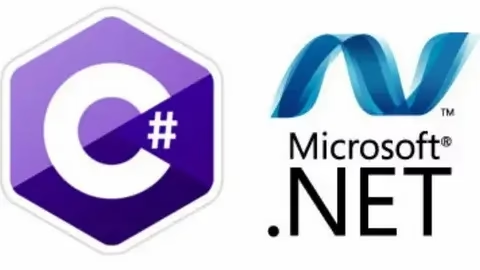Which Programming Language Is Best For Web Development In 2025
In nowadays virtual landscape, net improvement is a thriving discipline that continuously evolves with new system and technologies. One of the maximum pressing questions for both beginners and experienced developers is: which programming language is best for web development? With numerous options available, choosing on the proper net programming language can be difficult.

This article “which programming language is best for web development” will explore the pinnacle internet improvement languages in 2025, breaking down their strengths, use instances, and why they are probably the proper wholesome in your next assignment.
When deciding on which programming language is excellent for web improvement, it is beneficial to have a number one information of software improvement. Software improvement is the manner of creating applications that help customers perform precise duties on computers or different gadgets.
In internet development, this entails writing code that defines how a website or internet software behaves. Each programming language gives exceptional equipment and features to make this manner less difficult, relying on the sort of undertaking you are working on. Knowing how software program development works can manual you in choosing the right language to construct websites that are not simplest purposeful however also efficient and user-friendly.
Understanding Web Development
Web improvement includes growing websites and applications that run on the internet. It can range from easy, static pages to complex web-based totally apps, social media platforms, and e-trade websites. To higher apprehend which language to apply, it’s vital to distinguish between frontend and backend development.
- Frontend Development: This is what customers have interaction with without delay, related to languages like HTML, CSS, and JavaScript.
- Backend Development: This handles statistics, logic, and server-side features, the use of languages like Python, PHP, and Java.
Key Factors in Choosing a Web Programming Language
Selecting for “which programming language is best for web development” for your project relies upon on numerous vital elements:
- Ease of Learning: How newbie -friendly is the language?
- Performance: Can it handle your project’s performance needs?
- Community Support: Does it have a large, active community?
- Scalability: Can the language grow with your project?
- Security: How well does it protect against vulnerabilities?
Top Web Development Languages for 2025
As technology advances, so do internet improvement languages. Let’s examine the most prominent contenders for 2025:
1-JavaScript: The Fastest Web Development Language

JavaScript is a patron-side scripting language that has emerges as vital for current net development. It’s the language that makes web sites interactive, bearing in mind dynamic content like clickable buttons, animations, and actual-time updates with out reloading the web page.
When it comes to web development, JavaScript stays the most famous and flexible language. It powers each frontend and backend improvement, making it a top choice for full-stack projects.
Features of JavaScript
- Event-Driven Programming: JavaScript supports event-based programming, essential for interactive user interfaces.
- Prototype-Based OOP: JavaScript makes use of prototypes for inheritance, making it bendy.
- Versatility: JavaScript can be used for each frontend and backend improvement with environments like Node.js.
Pros of JavaScript
- Speed: JavaScript runs in the client’s browser, making interactions fast.
- Rich Ecosystem: A sizeable array of libraries and frameworks like React, Angular, and Vue.js streamline development.
- Cross-Platform: JavaScript works on all contemporary browsers and can even be used for server-aspect programs with Node.js.
Cons of JavaScript
- Browser Compatibility Issues: JavaScript can behave otherwise throughout distinctive browsers.
- Security Concerns: As a client-aspect language, it may be greater susceptible to safety troubles like Cross-Site Scripting (XSS) if now not dealt with efficiently.
Use Cases: JavaScript is ideal for interactive web pages, single-page applications (SPAs), and mobile applications the use of frameworks like React Native.
2-Python: The Best Programming Language to Learn in 2025

Python keeps to upward push in popularity, recognized for its easy syntax and considerable atmosphere of libraries. It’s a top contender for beginners and is frequently used for backend development.
- Frameworks like Django and Flask make Python an splendid choice for speedy development.
- Its readability and simplicity make it the best programming language to learn in 2025.
Features of Python
- Dynamic Typing: Python does not require explicit declarations of variable types, making it easier to write flexible code.
- Rich Standard Library: Python comes with a huge standard library, simplifying many responsibilities.
- Cross-Platform: Python runs on diverse working systems, enhancing its versatility.
Pros of Python
- Ease of Learning: Python’s syntax is smooth and easy to understand, making it an extremely good desire for beginners.
- Rapid Development: Python allows for brief prototyping and improvement, ideal for startups.
- Extensive Libraries: Libraries like Django and Flask make net development speedy and efficient.
Cons of Python
- Slower Execution: Python is an interpreted language, which can make it slower compared to compiled languages like C++ or Java.
- Not Ideal for Mobile Development: Python is not commonly used for mobile app development.
Use Cases: Python excels in web development, data science, machine learning, and automation.
3-Java: A Robust Choice for Backend Development

Java has been around since the mid-90s and remains one of the most reliable choices for backend web development. Known for its Write Once, Run Anywhere (WORA) philosophy, Java is platform-independent; which means Java applications can run on any system with a Java Virtual Machine (JVM).
Features of Java
- Object-Oriented Programming (OOP): Java makes use of OOP ideas, making the code modular, reusable, and simpler to control.
- Multithreading Support: Java can handle multiple threads simultaneously, enhancing the performance of applications.
- Scalability: Java supports both vertical and horizontal scaling, making it appropriate for large-scale enterprise applications.
Pros of Java
- Robust and Versatile: Java is thought for its robustness and versatility, making it suitable for diverse forms of net programs.
- High Security: Java’s built-in protection capabilities make it a safe choice for applications handling sensitive facts.
- Portability: The JVM allows Java applications to run on different operating systems without modification.
Cons of Java
- Memory Consumption: Java packages tend to use greater reminiscence as compared to some different languages.
- Verbosity: Java code can be extra verbose, which means that developers ought to write more lines of code to accomplish obligations as compared to languages like Python.
Use Cases: Java is widely used in enterprise applications, Android app development, and large-scale web platforms like e-commerce sites.
4-PHP: A Classic for Server-Side Scripting

PHP is a server-side scripting language that has been a cornerstone for the web development for decades. It powers many of the web’s most famous content management systems, which includes WordPress and Drupal.
Features of PHP
- Embedded in HTML: PHP can be embedded directly within HTML, allowing developers to add dynamic content material easily.
- Wide Database Support: PHP integrates properly with databases like MySQL, PostgreSQL, and Oracle.
- Cross-Platform: PHP runs on a couple of systems, which include Windows, Linux, and macOS.
- It powers popular platforms like WordPress and Drupal.
- PHP’s flexibility makes it the best programming language for web development in content management.
Pros of PHP
- Easy to Learn: PHP’s syntax is exceptionally truthful, making it available for beginners.
- Great for Web Development: Designed specifically for net improvement, PHP makes it smooth to create dynamic net pages.
- Strong Community: A large community offers extensive support and numerous frameworks like Laravel and Symfony.
Cons of PHP
- Inconsistent Syntax: PHP’s syntax can sometimes be inconsistent, leading to capability confusion.
- Performance Issues: PHP can be slower than latest languages, especially for complicated tasks.
Use Cases: PHP is broadly used for content management systems (CMS), e-commerce platforms, and server-side scripting.
5-Ruby: Quick and Elegant Web Development

Ruby is an elegant, object-oriented language designed to be intuitive and productive. Combined with the Ruby on Rails framework, it has emerged as a well-known preference for net developers.
Features of Ruby
- Object-Oriented: Everything in Ruby is an object, which simplifies code organization and reuse.
- Dynamic Typing: Ruby allows flexible code by now not requiring specific type declarations.
- Automatic Memory Management: Ruby manages memory automatically, lowering the risk of memory leaks.
Pros of Ruby
- Easy to Read and Write: Ruby’s syntax is close to natural language, making it easy to read and write.
- Rapid Development: With Ruby on Rails, developers can build programs quickly.
- Community Support: Ruby has a dedicated community providing ample resources and gems (libraries).
Cons of Ruby
- Slower Performance: Ruby is slower compared to a few different languages like Java or C++.
- Debugging Difficulty: Debugging Ruby code can sometimes be hard due to its dynamic nature.
Use Cases: Ruby is ideal for web applications, startups, and speedy prototyping.
6-C#: A Secure and Scalable Language

C# (suggested C-Sharp) is a flexible language developed by Microsoft. It is widely used for developing Windows applications, but its skills extend far beyond. C#, used with Microsoft’s .NET framework, is ideal for developing stable and scalable internet programs.
Features of C#
- Object-Oriented: C# helps OOP, making code simpler to maintain and make bigger.
- Rich Library: The .NET framework gives a comprehensive library for C# builders.
- Cross-Platform: With .NET Core, C# applications can run on Windows, Linux, and macOS.
Pros of C#
- Performance: C# compiles to an intermediate language, it truly is then JIT-compiled to gadget code, improving overall performance.
- Integration with .NET: Seamless integration with the .NET ecosystem.
- Scalability: Suitable for developing of each small and large application.
Cons of C#
- Steeper Learning Curve: Beginners may also discover C# more tough due to its considerable capabilities.
- Heavier Resource Usage: C# applications can be heavier in terms of memory and CPU usage.
Use Cases: C# is perfect for enterprise applications, game development (using Unity), and web services.
Frontend vs Backend Development Languages
In frontend development, HTML, CSS, and JavaScript are quintessential. JavaScript now not most effective enhances interactivity but also bridges the space among static and dynamic content.
For backend development, languages like Python, PHP, and Java take care of server-facet logic and statistics management, ensuring that your net software capabilities smoothly backstage.
Full-Stack Development with JavaScript
JavaScript dominates the full-stack development scene due to its capability to control both frontend and backend responsibilities seamlessly. Tools like Node.js make it a one-stop solution for developers aiming to master both ends of web development.
Emerging Future Programming Languages
Looking forward, future programming languages like Rust and Go are making waves due to their performance and security.
- Rust excels in memory safety and is becoming popular for building secure, high-performance web services.
- Go is loved for its simplicity and speed, particularly in cloud-based and scalable applications.
Which Programming Language Is Best for Web Development Quora and Reddit Discussions
Discussions on platforms like Quora and Reddit often highlight JavaScript, Python, and Java because the top contenders for web development in 2025. The community’s feedback on these languages can provide beneficial insights for brand spanking new and pro developers.
Which Programming Language Is Best for Web Development GitHub Projects
Browsing GitHub projects can reveal which languages are thriving in real-world applications. JavaScript, Python, and Java regularly seem in famous repositories, showcasing their enormous use and community assist.
How to Choose Which Programming Language Is Best for Web Development
Deciding on which programming language is best for web development relies upon for your project’s needs:
- Project Requirements: What functionalities do you need? (Consider the specific needs of your application)
- Team Expertise: What languages is your team familiar with? (Leverage the strengths of your team’s existing knowledge)
- Future Scalability: Will the language support your project’s growth? (Ensure the language can grow with your project)
Real-Life Anecdotes
A startup I worked with chose Python for their backend due to its readability and vast library support. The decision enabled rapid development and scaling, saving them months of work.Similarly, a huge organization opted for Java for its new e-commerce platform, ensuring balance and performance.
Conclusion
The answer to which programming language is best for web development varies depending on your task’s needs and your team’s information. Each programming language discussed has its unique strengths and weaknesses.
JavaScript is integral for frontend interactivity, at the same time as Java and C# are powerhouses for backend improvement. Python excels in versatility and fast improvement, PHP is awesome for content material-driven web sites, and Ruby is best for short, elegant internet answers.
Choosing the proper language depends for your task’s necessities, your crew’s expertise, and the unique use case you are targeting. Whether you’re building a dynamic website or a massive-scale net utility, one of these languages will actually meet your wishes.


